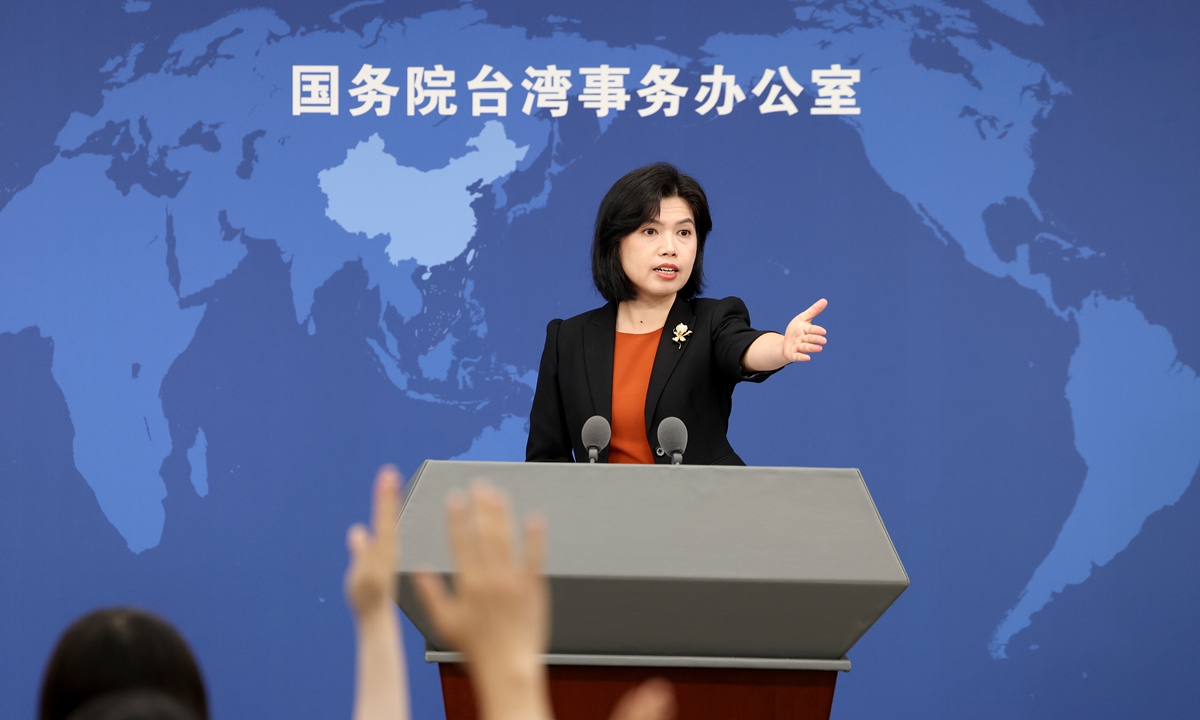
Taiwan Affairs Office spokesperson Zhu Fenglian. Photo: VCG
A spokesperson of the Taiwan Affairs Office of the State Council expressed on Saturday strong support of relevant government departments' further measures based on the findings of its investigation into Taiwan's trade barriers.
Taiwan Affairs Office spokesperson Zhu Fenglian stated that the responsibility lies entirely with the Taiwan authorities, as initially, the Democratic Progressive Party (DPP) authorities in the island of Taiwan have failed to lift trade restrictions on the mainland, and fundamentally, they continue to adhere to the "Taiwan independence" stance, refusing to acknowledge the 1992 Consensus. This undermines the foundation for cross-Straits consultations and obstructs the resolution of trade disputes through consultations.
Earlier on the day, the mainland's Ministry of Commerce, in response to media inquiries, stated that despite the ministry's December 15, 2023 announcement identifying Taiwan's trade restrictions on the Chinese mainland as trade barriers, the DPP authorities have not made any significant moves to lift these restrictions.
Relevant departments are considering further measures based on the findings of the their investigation into these trade barriers imposed by Taiwan, per a written statement by the Ministry of Commerce spokesperson.
On December 15, 2023,
the Commerce Ministry determined that the trade restrictions imposed by the island of Taiwan on the mainland constitute trade barriers, after an eight-month investigation.According to the rules of the World Trade Organization, Taiwan is obligated to provide equal treatment and competitive opportunities to the mainland and other WTO members. The cross-Straits Economic Cooperation Framework Agreement (ECFA) also clearly stipulates that the two sides should gradually reduce or eliminate tariffs and non-tariffs barriers on nearly all goods traded between the two sides.
However, the DPP authorities have adopted unilateral restrictions on a large number of products from the mainland, with the categories of prohibited imports expanding in recent years. By the end of November 2023, the imports of 2,509 items of products from the mainland were prohibited, Xinhua reported.
Global Times




